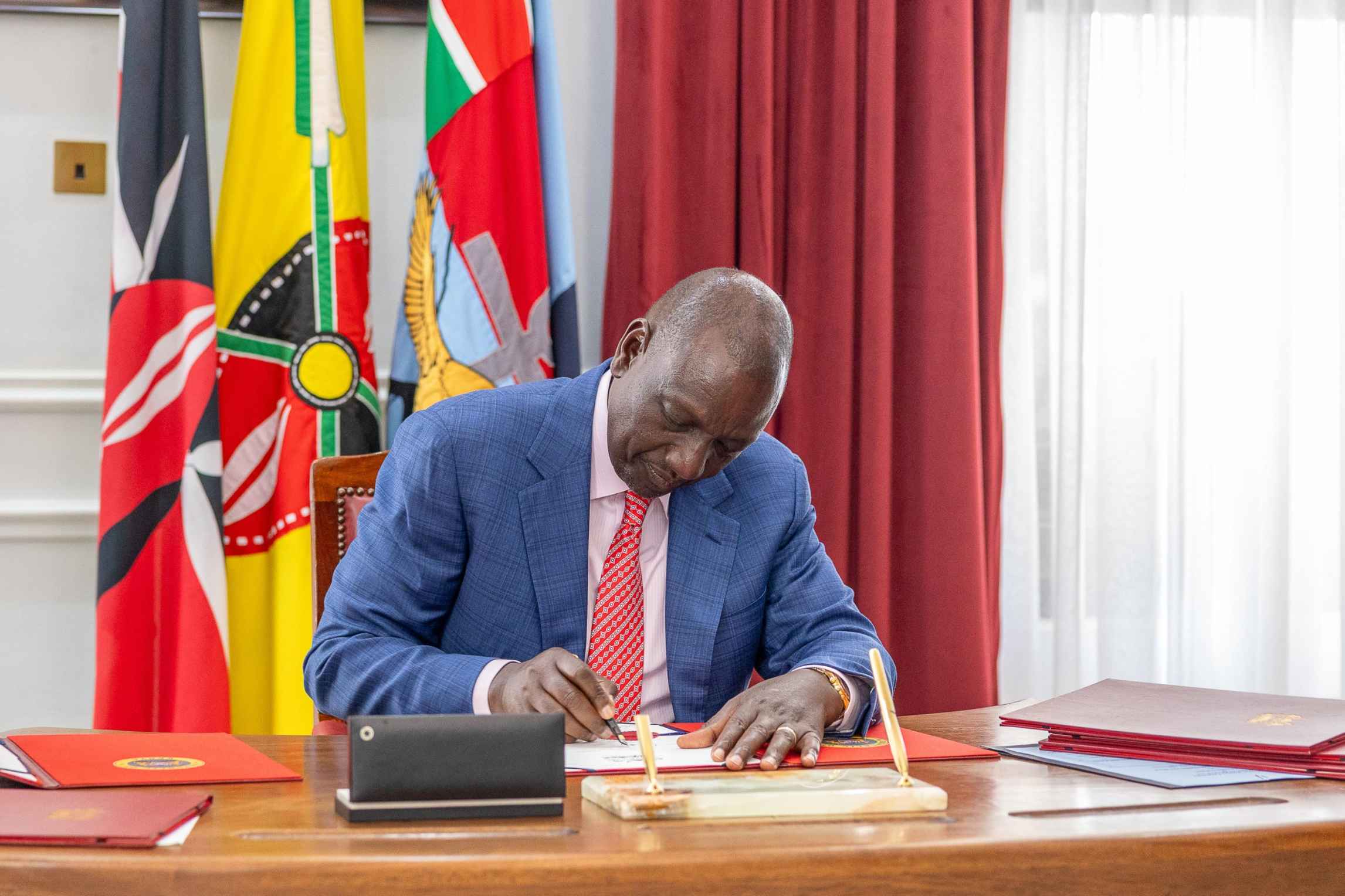Ruto signs law to remove transformer tax, promising cheaper electricity

According to the new law, the move will support better access to electricity by making transformer infrastructure cheaper and more accessible to both power providers and end-users.
Kenyans struggling with high electricity bills and delayed connections may soon find relief after President William Ruto signed into law a bill removing the 25 per cent excise duty on imported electric transformers and their parts.
The Excise Duty (Amendment) Bill, 2025, now offers a fresh opportunity to make power more affordable and reliable for households and businesses across the country.
The law amends the Excise Duty Act, CAP 472, and is expected to ease the cost of transformer imports and replacements, one of the biggest factors driving up electricity connection charges.
According to the new law, the move will support better access to electricity by making transformer infrastructure cheaper and more accessible to both power providers and end-users.
"This measure is expected to lower electricity connection costs for consumers by reducing the price of transformers, as every connection relies on transformer infrastructure. It will also help bring down electricity tariffs by cutting transformer replacement costs," the Bill states.
The Kenya Power and Lighting Company (KPLC), the country’s main electricity distributor, is expected to benefit directly from the removal of the tax.
With more room in its existing budget, KPLC can now procure additional transformers and address the country’s growing demand for power.
For many rural homes and small businesses, the new law brings renewed hope of getting connected to the grid without long waits or high charges.
With transformer costs lowered, new installations are expected to be faster and more widespread, reducing the backlog of connection requests.
Previously, the 25 per cent duty had been introduced under the Tax Laws (Amendment) Act, 2024, in an effort to encourage local assembly of transformers.
However, this plan backfired, as it ended up making both the parts and the fully assembled transformers more expensive.
"The amendment has hurt the manufacture and supply of transformers by increasing the cost of importing parts," the Bill notes.
Now, lawmakers believe the removal of the tax will not only help reduce the cost of electricity but also boost transformer availability to KPLC, allowing it to maintain a stable power supply and expand its network more efficiently.
"It is intended that this amendment will reduce the cost of electricity and enhance power connectivity through the increased manufacture and supply of transformers to the Kenya Power and Lighting Company," the Bill reads.
A statement from Parliament echoed this message, stressing the expected benefits.
"If enacted, this amendment is expected to lower electricity costs and improve power connectivity by facilitating increased manufacturing and supply of transformers to the KPLC," it said.
The timing of this change is important.
Kenya is currently facing a transformer shortage that has slowed down power connections for thousands of people.
In April 2025, KPLC was forced to launch an emergency procurement plan to acquire 3,319 transformers within just two weeks to meet urgent needs.
The Excise Duty (Amendment) Bill also addresses other imported goods that had been affected by the Tax Laws (Amendment) Act, 2024.
These included items like printing ink, polished glass, sanitary ware, coal, and several types of industrial polymers.
While those items are still subject to tax, the focus on removing the duty for transformers highlights the government’s priority in addressing the energy crisis.
